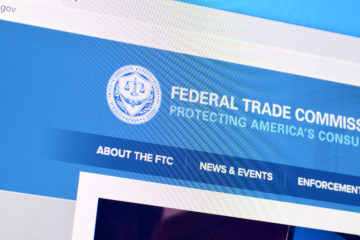The Market Institute Senior Fellow Norm Singleton has a new article in Real Clear Markets reviewing the falling ratings of Federal Trade Commission Chair Lina Khan. The internal findings of rank and file employees at FTC reveal a troubling trend.
He writes:
“Hopefully House leaders read Market Institute President Charles Sauer’s recent article on the Federal Trade Commission’s (FTC) falling ratings in the annual Federal Employee Standing Survey (FEVS). The article provides more reasons for the House Republicans to investigate FTC Chair Lina Khan’s abuse of power in pursuit of her radical agenda.
FEVS assesses what employees think about policies, practices, and procedures of their agency and its leadership. The FTC has usually received high marks on the survey for the honesty and integrity of their leadership, but since Khan’s took the helm the agency’s ratings fell below 50% in 2021 and are currently below 40%.
It is no coincidence that the decline in the FTC’s ratings coincide with Lina Khan’s tenure. The low morale of the agency is directly related to Khan’s personal crusade to expand government’s control over the economy under the guise of antitrust regulation. Khan, who is a leading “neo-Brandeisian,” has latched onto the FTC’s statutory mandate to prevent “unfair” competition to justify giving the FTC power to second guess nearly every decision made by a “big” business. Inspired by Supreme Court Justice and progressive icon Louis Brandeis, adherents of this ideology view big business as a threat to small businesses, workers, and consumers simply because they are big.
In the two years since Khan has assumed the chair, the FTC has filed a record number of lawsuits against American businesses, as well as a record number of “second requests” for information regarding mergers and acquisitions brought to the FTC for “pre-approval.” Second requests force companies to waste valuable time and resources complying with the demands, prompting some businesses to decide the merger or acquisition is no longer worth the cost and thus abandon what could have been a profitable transaction benefiting the business owners, investors, workers, and consumers.
Some of the cases brought by Khan’s FTC are cases Khan, her allies on the board, and the FTC’s professional staff know they will lose. This is part of Khan’s strategy as outlined in an April 2021 speech shortly after she become FTC chair. Khan stated that even if current law makes it difficult for federal agencies to prohibit certain conduct— “there’s still a huge benefit to trying,” since an unsuccessful lawsuit may help spur Congress to expand the agency’s antitrust authority. In other words, Khan is forcing the FTC’s staff to waste their time and the taxpayer’s money for her “lobbying by litigation” strategy.
The FTC board is not just disregarding the established way of evaluating cases, it is disregarding the advice of the professional staff. At least one high-profile case, the acquisition of the virtual reality company Within Unlimited by META (parent company of Facebook, Instagram, and What’s App) was brought by the FTC against the advice of the professional staff. As if that was not insult enough, Khan has also expanded the FTC’s use of unpaid “consultants” without making it public how these consultants are chosen or explain what they are consulting on—raising the possibility that these outside experts are helping Khan implement policy changes without full transparency.
The idea that the House GOP would side with a regulatory agency’s professional staff over Presidential appointees seems counterintuitive. However, the FTC’s staff is unhappy with Lina Khan and her allies because they resent having to waste time pressing a fruitless pursuit of a nakedly political agenda. No doubt they are unhappy with the way Khan and her allies are being pushed aside in favor of outside “advisors” to Chair Khan.”


